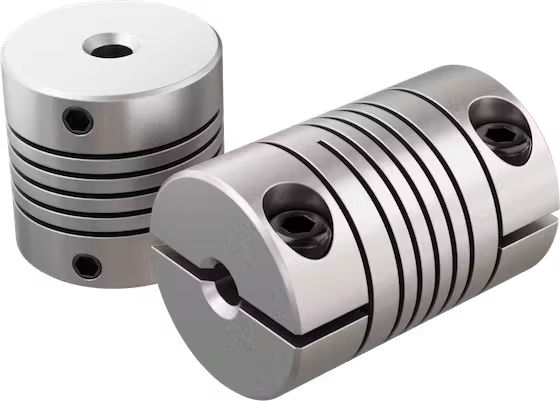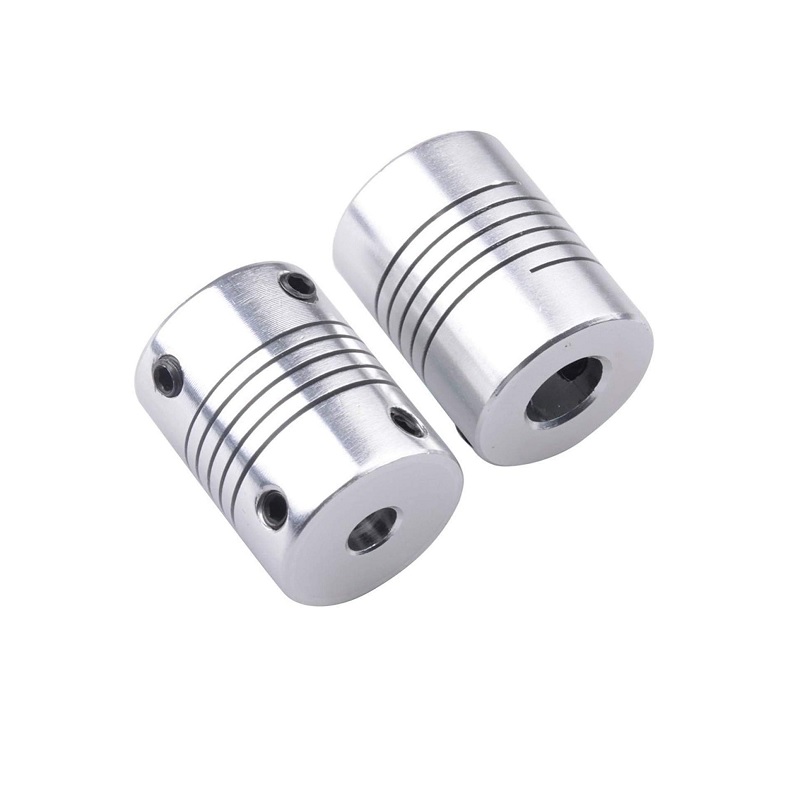Product Description
Quick Coupling Welding With Lock Guillemin Guillemin With Helical Shank
The standard of Guillemin Coupling is EN14420-8 or NF E29572. Materials are mainly stainless steel, aluminum, polypropylene and brass. Guillemin hose couplings is connected with thread and locking ring (latch). It can be used with DIN2817 safety clamp. Working pressure is 10 bar. Guillemin coupling is widely used in industries of oil, chemical, fire protection, paper manufacture, construction and metallurgy.
Guillemin couplings, also referred to as French couplings are symmetrical couplings where to identical halves are assembled by joining the lugs and turning the locking ring to ensure a good connection.
Pros:
Simple and easy connection
Has a locking ring and soft seal
Large free flow area
Aluminum couplings are lighter in weight than stainless steel
Suitable for water, fluids, hydrocarbons, chemicals, and dry loose materials
| Product Name: | Guillemin Camlock Coupling |
| Sizes: | 1” – 4” (DN25-DN100) |
| MOQ: | 50 pcs |
| Certificates: | CE, ISO9001:2015 |
| Standard: | EN14420-8 /NF E29572 |
| Material: | Stainless steel 316/ 304, Aluminum, PP |
| Working pressure: | 10 bar |
| Feature: | Light, flexible and interchangeable. To connect and disconnect without a tool. Economical |
| Application: | it is widely used in oil, chemical industry, fire fighting, paper manufacture, constructoin and metallurgy |
| HS code: | 7609000000 |
Our Advantage
We are experienced as we have been in this industry as a manufacturer for more than 10 years. Both of quality and service are highly guaranteed. Absolutely prompt delivery. We can produce according to specific drawings from customers. Welcome OEM/ODM project. Strict control on quality. High efficient and well trained sale service team. ISO9001, CE and SGS certified.
FAQ
1.Q: Are you a producer or trading company?
A: We are an experienced manufacturer. We own production line and kinds of machines.
2.Q: Can you make our specific logo on the part?
A: Yes please provide me your logo and we will make your logo on the part.
3.Q: Can you manufacture products according to my drawings?
A: Yes we can manufacturer according to client’s drawings if drawings or samples are available. We are experienced enough to make new tools.
4. Q: Can I get some samples?
A: We are honored to offer you our samples. Normally it is for free like 3-5 pcs. It is charged if the samples are more than 5 pcs. Clients bear the freight cost.
5. Q: How many days do you need to finish an order?
A: Normally it takes about 30 days to finish the order. It takes more time around CHINAMFG season, or if the order involves many kinds of different products.
6. Q: What kind of rubber washer do you apply to camlock couplings?
A: Normally we use NBR gasket.
contact-info.html /* January 22, 2571 19:08:37 */!function(){function s(e,r){var a,o={};try{e&&e.split(“,”).forEach(function(e,t){e&&(a=e.match(/(.*?):(.*)$/))&&1

Industry Standards and Guidelines for Helical Couplings
While there are no specific industry standards dedicated solely to helical couplings, their design and application are influenced by general coupling standards and guidelines:
- AGMA Standard: The American Gear Manufacturers Association (AGMA) provides guidelines and standards related to couplings, including helical couplings. Their standards cover aspects like design, selection, and application considerations for flexible couplings.
- ISO Standards: The International Organization for Standardization (ISO) also offers standards related to flexible couplings. ISO standards provide recommendations for design principles, performance characteristics, and testing procedures.
- Manufacturer Recommendations: Coupling manufacturers often provide specific guidelines for the design, installation, and maintenance of their products. These recommendations are based on engineering principles and practical experience.
When designing and using helical couplings, engineers should consider these industry standards and guidelines to ensure proper performance, reliability, and safety. Adhering to recognized standards helps ensure that helical couplings are selected, installed, and operated correctly in various mechanical systems.

Variations of Helical Couplings for Specific Uses
Helical couplings come in various variations, each designed to suit specific applications and requirements:
- Flexible Helical Couplings: These couplings are designed to provide flexibility to accommodate misalignments and torsional vibrations. They are commonly used in applications where shaft misalignment is expected.
- Rigid Helical Couplings: Rigid helical couplings are designed to provide a more solid connection between shafts, offering minimal flexibility. They are suitable for applications where precise torque transmission and accurate positioning are crucial.
- Beam Helical Couplings: Beam-style helical couplings use thin metal beams to transmit torque while allowing for some misalignment. They are often used in applications that require high torsional stiffness and minimal backlash.
- Bellows Helical Couplings: Bellows couplings use accordion-like bellows to compensate for misalignment and provide vibration damping. They are commonly used in applications that require high torsional flexibility and protection from external contaminants.
- Oldham Helical Couplings: Oldham couplings use three discs: a central disc sandwiched between two outer discs with perpendicular slots. They offer excellent misalignment compensation and are often used in motion control systems.
- Helical-Beam Couplings: These couplings combine the flexibility of beam couplings with the misalignment compensation of helical couplings. They are suitable for applications that require both flexibility and misalignment tolerance.
- Slit Helical Couplings: Slit couplings have a slit design that allows for easy installation and removal without the need to disassemble the entire system. They are commonly used in applications where frequent maintenance is required.
The availability of these variations allows engineers and designers to select the most suitable type of helical coupling based on the specific needs of their application.

Best Practices for Lubricating and Preserving the Performance of Helical Couplings
Lubrication is crucial for maintaining the performance and longevity of helical couplings. Here are some best practices to consider:
- Choose the Right Lubricant: Select a lubricant that is compatible with the materials of the coupling and provides adequate protection against wear and corrosion.
- Regular Lubrication: Follow the manufacturer’s guidelines for lubrication intervals. Regularly lubricate the coupling to ensure proper operation and prevent excessive wear.
- Clean Before Lubrication: Clean the coupling and the surrounding area before applying lubricant to prevent contamination.
- Apply the Right Amount: Apply the appropriate amount of lubricant as recommended by the manufacturer. Too much lubricant can lead to excess buildup and attract debris.
- Distribute Evenly: Ensure that the lubricant is evenly distributed across the coupling’s surfaces to provide effective lubrication.
- Monitor Performance: Regularly monitor the coupling’s performance for any signs of increased friction or abnormal operation that may indicate the need for relubrication.
- Inspect for Wear: During maintenance checks, inspect the coupling for signs of wear, corrosion, or damage. Replace the coupling if necessary.
- Protect Against Contaminants: Shield the coupling from dust, dirt, and other contaminants that can degrade the lubricant and cause premature wear.
- Environmental Considerations: If the machinery operates in extreme temperatures, wet or corrosive environments, choose a lubricant that can withstand these conditions.
- Follow Manufacturer’s Recommendations: Always follow the manufacturer’s recommendations for lubrication, maintenance, and storage to ensure optimal coupling performance.
By adhering to these best practices, you can maximize the efficiency, reliability, and lifespan of helical couplings in various mechanical systems.


editor by CX 2024-04-04